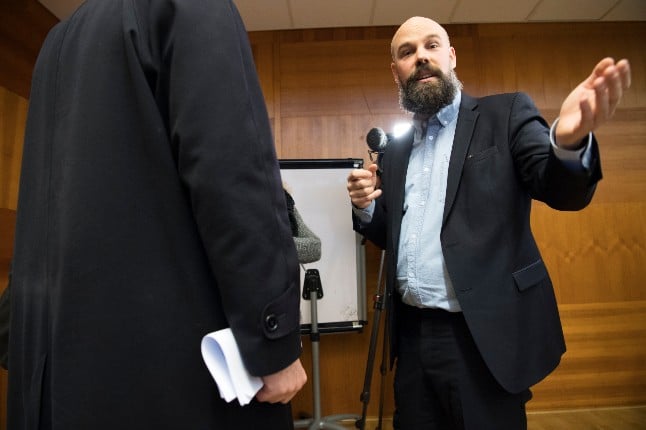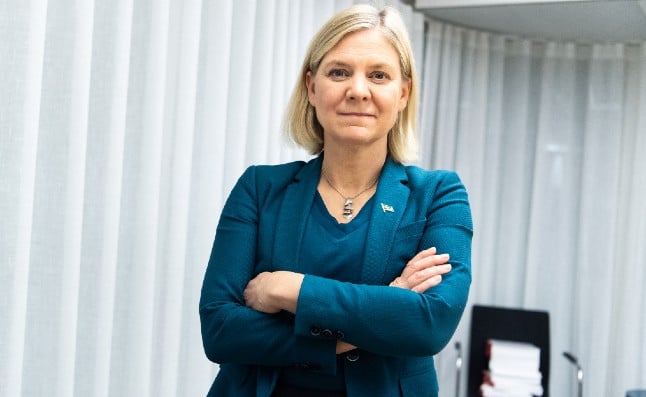When a right-leaning coalition ousted Sweden’s long-sitting Social Democrats four years ago, many feared the end was near for the country’s coveted welfare state, but as Sunday’s vote approaches, experts say few real changes have been made to the system.
“There have been no dramatic, systemic changes or radical cuts to the welfare state, but rather a marginal re-orientation,” says Stefan Svallfors, a sociology professor at Umeå University in northern Sweden.
Sweden’s cradle-to-grave welfare state has been hailed by many as one of the world’s most successful socio-economic models, offering universal health and child care, more than a year’s parental leave, a solid public education system and an extensive sick-leave and benefits system.
The so-called “Swedish model,” which combines socialist values and virile industry and enterprise is often held up as an example to follow when governments around the world contemplate reform.
But when the centre-right Alliance, made up of Prime Minister Fredrik Reinfeldt’s Moderate Party along with the Centre, Liberal and Christian Democrat parties won the 2006 election many wondered if the system would survive.
They toppled the Social Democrats, who have dominated Swedish politics for the past 80 years and are considered the primary caretakers of the welfare state, and recent polls indicate they are set to win another, albeit tight, victory on September 19th.
Yet observers say little has been done to alter Sweden’s socialist-minded welfare state, pointing out that the model is too deeply engrained in the Swedish identity to allow much beyond small changes within the existing framework.
“Basically, there have not been many changes to the Swedish welfare state,” says Håkan Tribell of the conservative think tank Timbro.
The government “has not changed any of the main principles or reduced the welfare state’s ambitions,” he says.
Ulf Bjereld, a political science professor at the Gothenburg University with connections to the Social Democrats, agrees the government has not yet truly altered the system.
“I think the Moderate Party especially knows there is no support among the Swedish public for radical changes to the welfare state,” he tells AFP.
However, according to Social Democrat chief Mona Sahlin, who is angling to become Sweden’s first woman prime minister at the head of a leftwing opposition coalition that also includes the Greens and formerly communist Left Party, the welfare state is already shifting character.
“The disparities have grown over the past four years,” she said in a recent televised debate with Reinfeldt, insisting his government’s reforms have left the poor and disadvantaged worse off while padding the pockets of the wealthy.
The government has among other things significantly cut income taxes, reformed the unemployment benefit system to make coverage fees more expensive for people in professions struggling with high unemployment, and slashed access to long term sick leave.
According to the left, which has been eager to supply examples of seriously ill people hit by the latter change, some 45,000 people will this year lose their benefits and be forced back onto the labour market.
“You do not become healthy just because you become poor,” Sahlin pointed out.
Reinfeldt meanwhile insists the reform aims to help people move from benefits to work and to create more jobs to help finance the welfare state.
“You can never let down your guard on jobs, or the welfare state suffers,” he said in the televised debate, adding that “when more people are working … we can afford to maintain our welfare ambitions.”
Reinfeldt, who has created headlines by claiming his party is Sweden’s only true “workers party,” has not always been such an outspoken supporter of the welfare state.
For instance, in a 1993 book titled “The Sleeping Nation,” he called for the system to be replaced with a more neoliberal society.
Since then however, he and the rest of the government have toned down criticism of the welfare state, as it is generally understood that Swedes have no interest in dismantling the system.
“They basically went to the elections on leftist rhetoric last time, and that’s what they are doing again,” says sociologist Svallfors, pointing out however that the government’s “politics have not been very left-wing.”
“When Reinfeldt talks about the new workers’ party, for instance, he is not talking about a party for the working class, but for people with jobs, opposed to those who don’t work and are living on benefits,” he says.




 Please whitelist us to continue reading.
Please whitelist us to continue reading.
Member comments